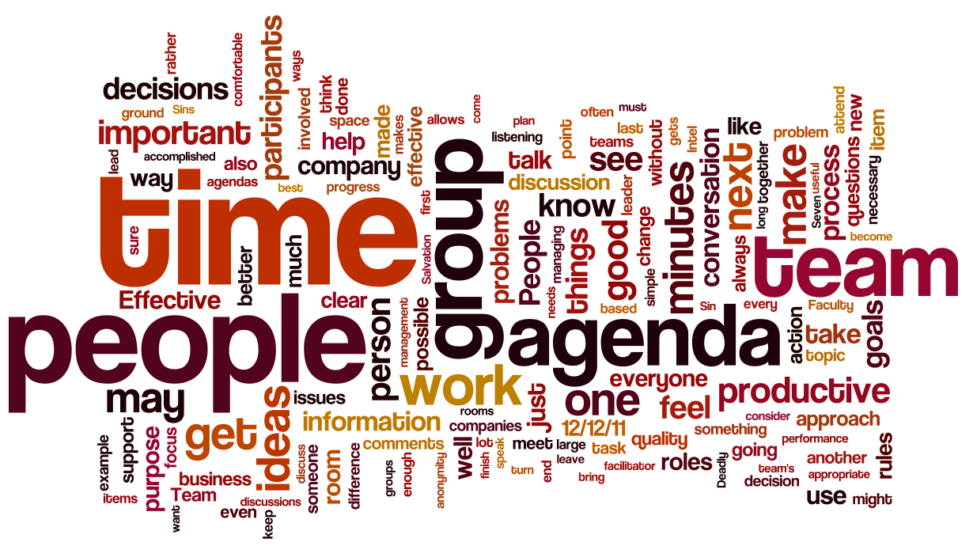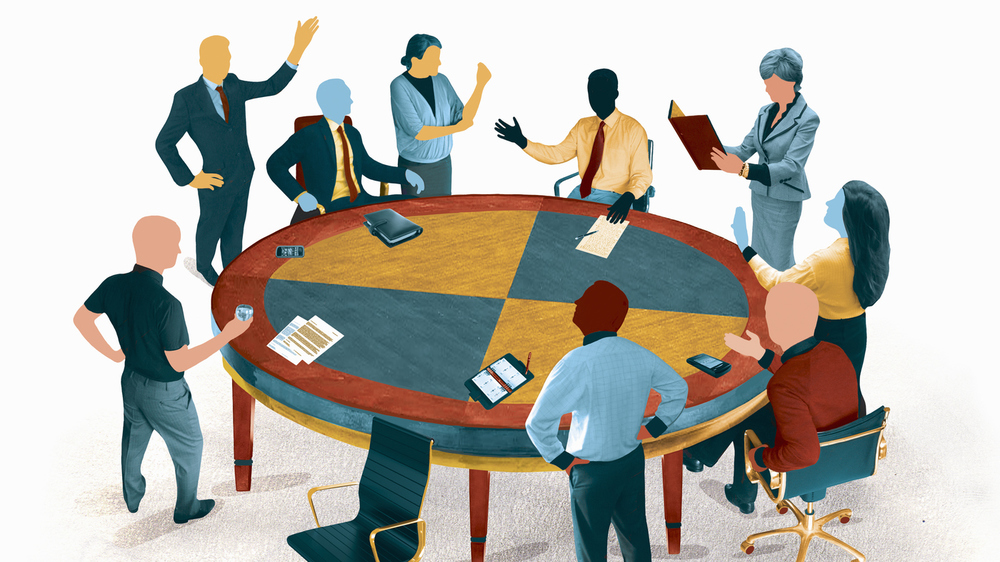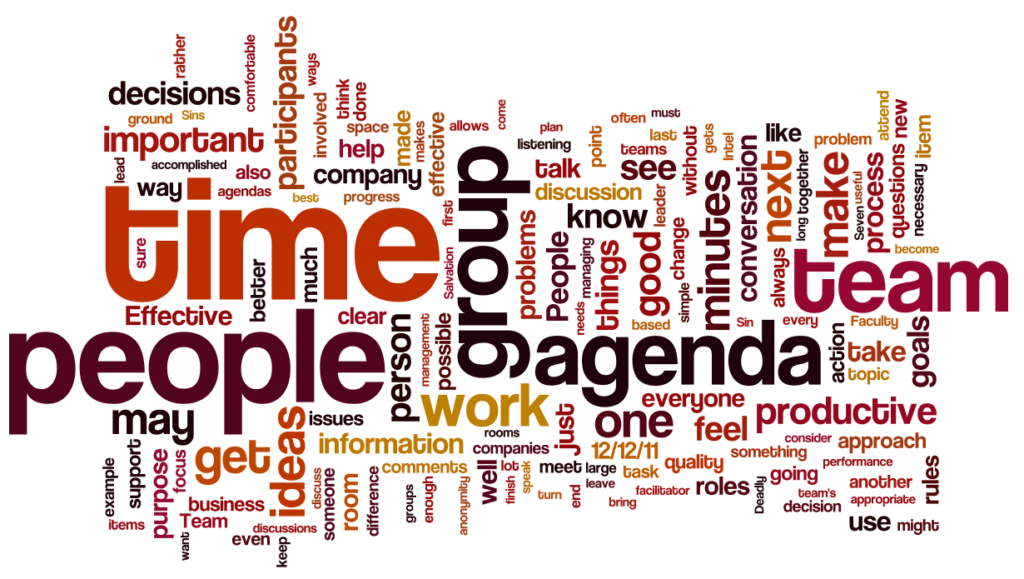Half of all business meetings are considered a waste of time due to wrong agenda for meeting and improper management of meetings. Most employees attend multiple meetings which are really not necessary in first place & can be easily replaced by emails or quick conversations. Harvard Business Review reports that 15 percent of an organization’s collective time is spent in meetings.
Majority of meetings were conducted without a pre-planned agenda, and very few percent of meetings actually results in some productive conclusions. High percentage of meetings are unproductive because of following reasons.
- Inconclusive or no decisions made
- Poor preparation
- Disorganisation
- Latecomers
- wrong participants
- Poor time management
So as we know these are main reasons, then lets check in detail how we can make meetings effective & efficient.
When to call a meeting?
Don’t call meeting when you can just send an email and don’t send email if you can just walk over to colleague’s desk and have a quick conversation about topic.
Meetings are not for :
- Status check
- Read presentation to a group
- Update about anything
Meetings are for :
- Discussion
- Debate
- Decisions to make
Before you decide to have a meeting, always remember, you are asking people to give their time which is very valuable and should not be wasted for any reason. Think twice if the meeting call is necessary. Once you decide, yes its necessary to have a meeting, please make sure all points below are covered to have a effective and efficient meeting.
Before Meeting:
- Define Objective – What is agenda of meeting? What is objective of meeting? What do you expect of outcome of this meeting? Action points for individuals or decisions about something or agreements on certain topics. Make sure you identify objective of the meeting so you can direct meeting’s focus towards it if it starts diverting from agenda. Share this actionable agenda with participants so everyone is aware of meetings objective.
- Select Participants – Make sure you select participants carefully. Time is most important asset. Also If someone who is not directly involved in agenda of meeting then it would be waste of their time. Sometimes when meeting is about decision making, it might be helpful to involve only people who would be making decisions, other people could create unnecessary discussions in meeting and divert agenda. Try to limit attendees. Ideally aim for no more than six or seven people. When there are more attendees, they turns into spectators.
- Organisation – Make sure, meeting rooms are booked, if its meeting through some online meeting software then you communicate all required connecting details for meeting to participants. prepare copies and papers required for everyone beforehand. Be at meeting room on time. If pen & paper or laptop necessary, mention the required details in invitation email. Also its likely that some people still forget to bring it, then carry some additional with you. Test all technical setup of meeting before meeting call, so when meeting is started, and everyone is in room, you don’t have to wait for technical reasons.
During Meeting :
- Beginning – Begin on time. A 10-minute delay for six people costs an hour of combined productivity for everyone. Begin the meeting without the latecomer’s if possible, and find out strategies to ensure everyone arrives on time. Sending a notification about meeting 10 minutes or an hour could help in reminding people about being on time. When meeting starts, introduce everyone again about agenda and if its meeting over internet then introduce who is in call. Also repeat what is objective of meeting & agenda for meeting so this will bring everyones focus on important thing.
- Time management – prepare beforehand about how much time should be spent on each point of meeting. When certain duration is finished and still participants are discussing on previous topic, its important to make aware of time and direct meetings focus towards objective. Sometimes in the heat of meeting discussions, we forget the time and meeting time ends without conclusion or final action points. So someone , specifically meeting organiser should be always aware of time and remind participants every time when it lags behind schedule. Whenever there is discussion going off track, interject & ask to take detailed discussions offline to avoid missing timeline for current meeting.
- Wrap-up – Every meeting which ends without any actionable points or conclusion or decision is mostly wasted time and highly unproductive for everyone. There is should be clear action points and owners for those actions after meeting and those should be informed to respective participants and followed up for confirmation that the expected actions are achieved.
After Meeting :
- How to document actions – Normally someone from meeting should be taking notes ie. minutes of meeting. there should be an agreement between participants at end of meeting about what actions to be taken and who should be owner for each action. Those actions should later be communicated through email for confirmation so every one is aware of it.
- How to follow up on actions – When you have email sent about actions and expected deadlines for each action. You can easily followup with respective participants about their status. This is important to make sure there is followup on actions after those deadlines rather reporting when actions are completed. This will ensure that meeting was resulted in productive outcome.
Who is responsible for successful meeting?
Meeting’s success is not only responsibility of organiser but it’s responsibility of every participant. Meeting is not one way street. Everyone must contribute in order to achieve objective of meeting and meetings agenda is followed. Everyone should avoid diverting discussions towards irrelevant topics. Everyone should respect everyone else time and focus on agenda.
If there are any points, that you would like to add which would help in improving effectiveness and efficiencies of meetings, please comment below.



Leave a Reply
You must be logged in to post a comment.